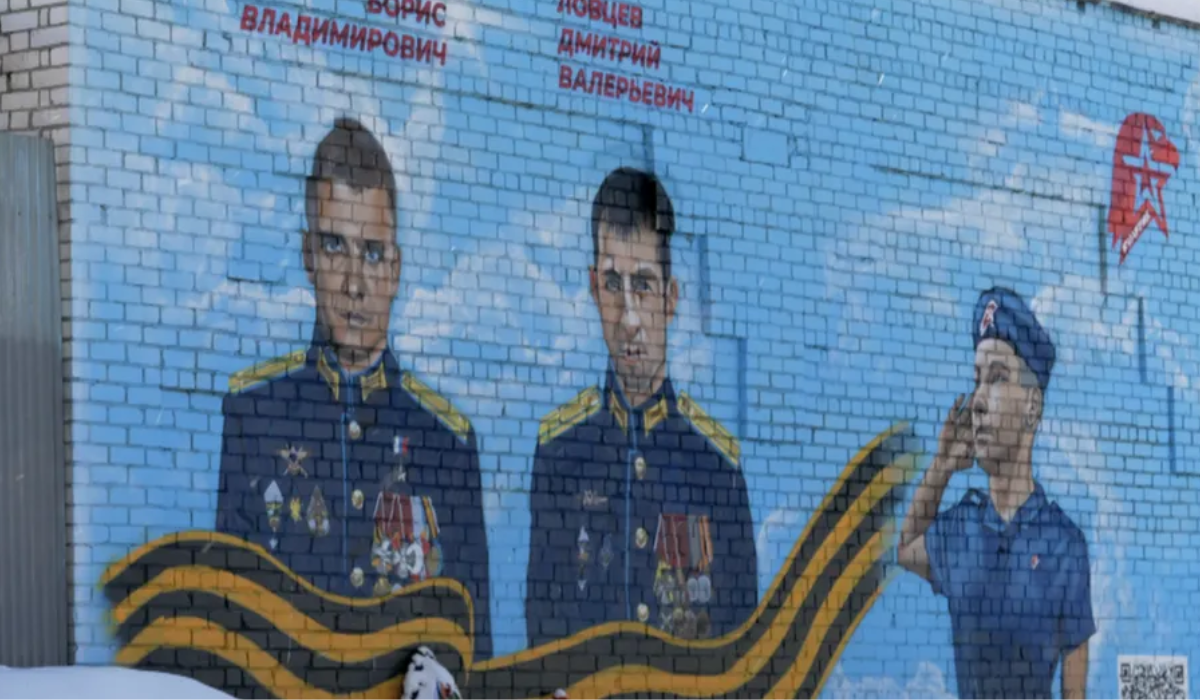As I stood amidst Russians paying tribute to the memory of Alexei Navalny, a poignant dialogue with a young man unearthed the depths of shock and sorrow echoing across the nation. His words, laden with emotion, echoed the sentiments that reverberated through the hearts of many: “I’m in shock, just like two years ago on 24 February: when the war started.”
Reflecting on the tumultuous events that have unfolded in Russia over the past two years, since President Putin’s fateful decision to launch a full-scale invasion of Ukraine, one cannot help but grasp the catalogue of drama, bloodshed, and tragedy that has beset the region.
Ukraine and Russia Trail of Destruction
Russia’s incursion into Ukraine has left a trail of death and devastation, not only among the Ukrainian populace but also within the ranks of the Russian military itself. Towns have been mercilessly shelled, and Russian soldiers have been deployed en masse, compelled to confront the harsh realities of conflict.
The mutiny of Wagner mercenaries, their audacious march on Moscow, and the subsequent demise of their leader Yevgeny Prigozhin underscore the internal fissures and complexities that have emerged within Russia’s own ranks.
Source: Getty Images
Moreover, the specter of alleged war crimes has cast a long shadow over the Kremlin, with the International Criminal Court issuing an arrest warrant for President Putin himself—an unprecedented indictment that underscores the gravity of the situation.
Against this backdrop of turmoil and strife, the untimely demise of Alexei Navalny, one of Putin’s most vocal critics, marks yet another pivotal moment in Russia’s tumultuous trajectory. His death on 24 February 2022 serves as a sobering reminder of the profound fissures that have ruptured the fabric of Russian society.
However, the roots of Russia’s descent into chaos trace back far beyond the onset of military conflict in Ukraine. From the annexation of Crimea in 2014 to Navalny’s poisoning and subsequent imprisonment, Russia’s descent into authoritarianism has been a gradual but inexorable process—one characterized by escalating repression and defiance of international norms.
The disillusionment with Putin’s regime stands in stark contrast to the optimism of years past. Two decades ago, the prospect of Russia joining the European Union seemed within reach, fostering hopes of closer cooperation and shared prosperity. Yet, as I sifted through dusty archives of dispatches from bygone years, the stark juxtaposition between then and now became painfully apparent.
In a candid exchange with former NATO chief Lord Robertson, the evolution of Putin’s leadership emerges as a central point of contention. From a statesman committed to dialogue and cooperation, Putin has metamorphosed into a figure consumed by hubris and paranoia—a transformation that has left many bewildered and disheartened.
Source: Getty Images
Growing Ego
Lord Robertson’s recollection of Putin’s fleeting flirtation with NATO membership offers a glimpse into the shifting sands of Russian geopolitics. Once willing to entertain the prospect of integration, Putin now perceives NATO as an existential threat—an adversary to be vanquished at all costs.
Yet, amidst the geopolitical machinations and grandiose ambitions that define Putin’s Russia, it is the voices of ordinary citizens that resonate most profoundly. In towns like Solnechnogorsk, scarred by the ravages of war, the toll of conflict is etched into the very fabric of daily life.
For Lidiya Petrovna and countless others, the specter of war looms large, casting a pall of uncertainty over their aspirations for peace and stability. While the resurgence of domestic industry may offer a glimmer of hope, it is tempered by the grim reality of lives lost and futures shattered.
As Marina gazes anxiously at her son, a poignant reminder of the human cost of conflict, her plea for peace echoes the sentiments of a nation yearning for respite from the relentless tide of violence.
In the crucible of crisis, Russia stands at a crossroads—a nation torn between the allure of its imperial past and the imperatives of a rapidly changing world. How and when this tumultuous chapter will draw to a close remains uncertain, but one thing is clear: the echoes of the past reverberate through the corridors of power, reminding us of the perils of hubris and the enduring quest for peace.



